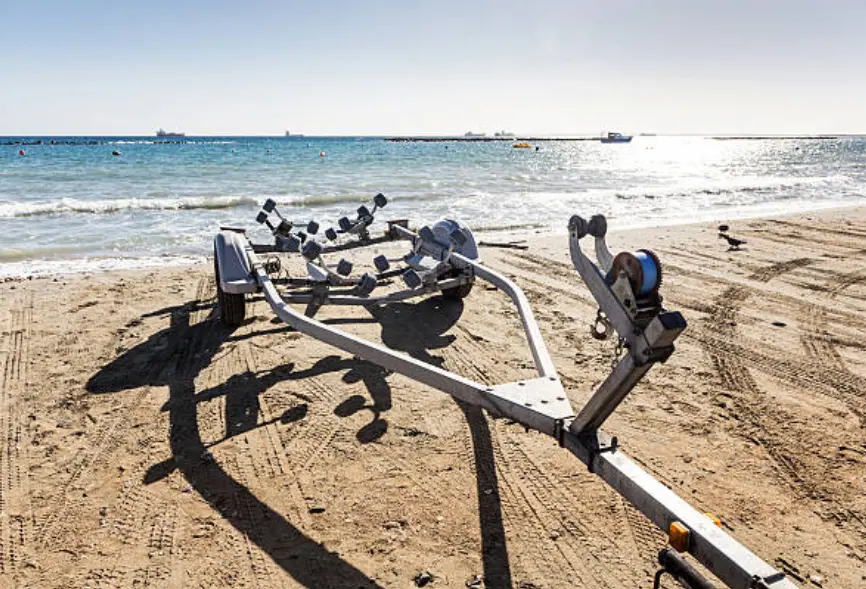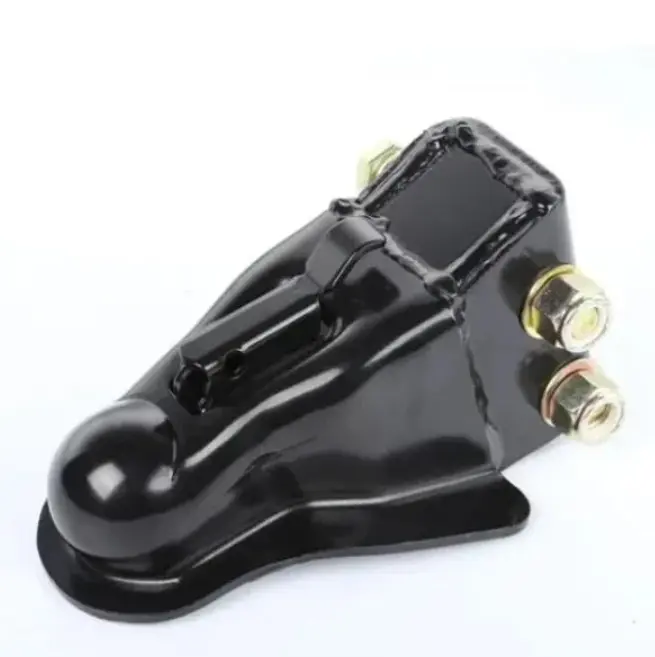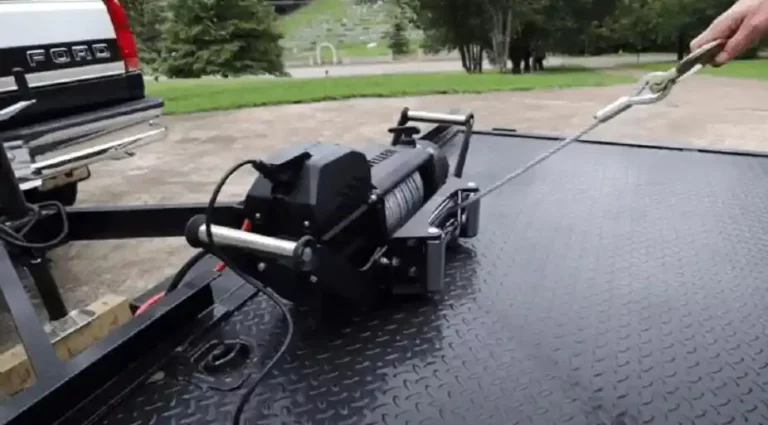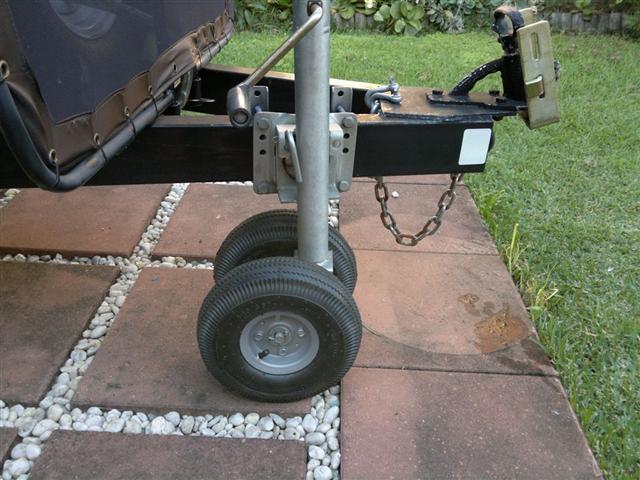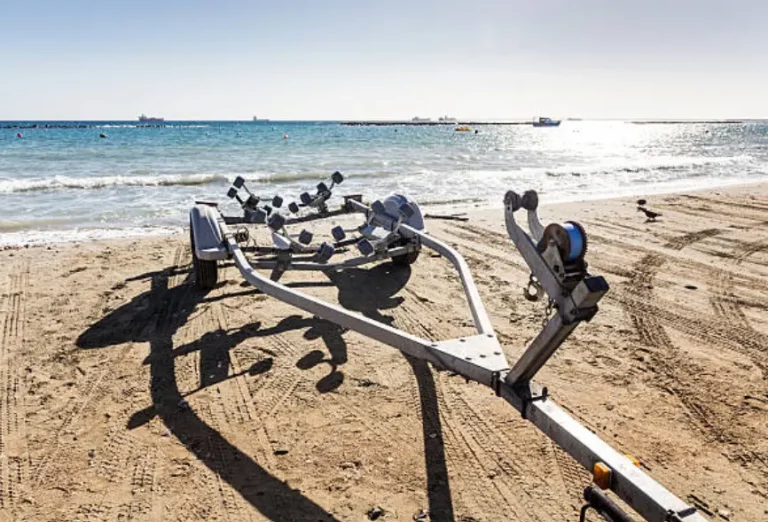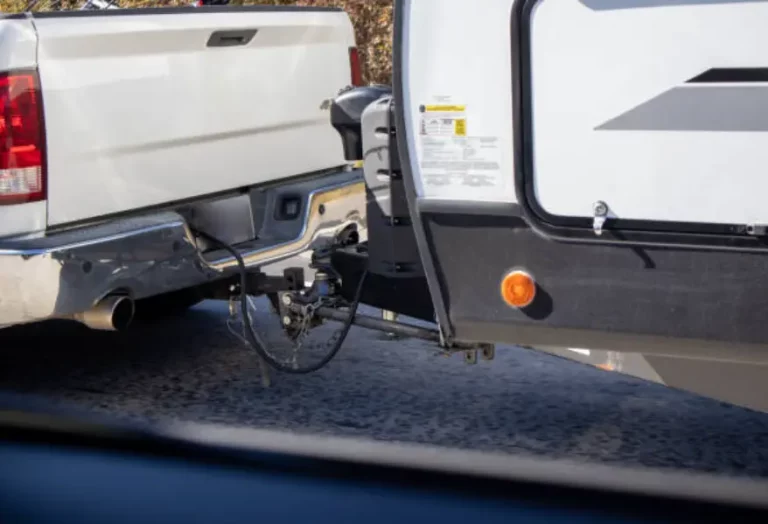Ensuring your trailer is properly loaded is essential for safe towing. One of the most critical aspects of this is understanding and managing your trailer’s tongue weight. Tongue weight is the amount of weight that a fully loaded trailer exerts downward on the hitch ball of the tow vehicle. This weight is crucial to safe towing because if the tongue weight is too high or too low it can cause trailer sway and other dangerous conditions.
Why is Tongue Weight Important?
Proper tongue weight is essential for safe and stable towing. An incorrectly loaded trailer, with too much or too little tongue weight, can lead to:
- Trailer Sway:Insufficient tongue weight can cause the trailer to sway or fishtail. This can be dangerous, especially at high speeds, and may lead to loss of control.
- Loss of Control:Too much tongue weight can overload the rear of the tow vehicle, affecting steering and braking. It can cause the rear of the vehicle to sag which also negatively affects handling and braking.
- Uneven Tire Wear:Improper tongue weight can cause uneven wear on the trailer’s tires and the tow vehicle’s tires.
- Damage to Components:Excessive tongue weight can damage the trailer’s frame, hitch components, or the tow vehicle’s suspension.
What is the Ideal Tongue Weight?
Typically, your tongue weight should be 10-15% of your total trailer weight. For example, if your fully loaded trailer weighs 5,000 pounds, your tongue weight should ideally be between 500 and 750 pounds. It’s important to note that this is a general guideline, and specific requirements can vary depending on the type of trailer, the tow vehicle, and the manufacturer’s recommendations. Always refer to your owner’s manual for specific guidelines.
How to Measure Tongue Weight
There are several ways to measure tongue weight, each with varying levels of accuracy and convenience. Here are three common methods:
1. Tongue Weight Scale
Using a tongue weight scale is the easiest and most accurate way to measure your trailer’s tongue weight. These scales are specifically designed for this purpose and provide a direct reading.
How to Use: Place the tongue of your loaded trailer on the scale at the normal towing height. The scale will display the tongue weight.
- Big Truck Big RV Tongue Weight Scale:This is a highly recommended scale for accurately measuring tongue weight.
- Ball Mount with Built-in Scale:Some ball mounts come with a built-in scale, providing a convenient way to measure tongue weight while hitching.
2. Bathroom Scale Method
This method can be used for smaller trailers and involves using a bathroom scale and a box. It is less accurate than a tongue weight scale, but it can provide an estimate.
Method A (Direct Measurement):
- Place a box or support that is the same height as the bathroom scale next to the scale.
- Position a pipe on top of the scale and the support.
- Place the coupler of your loaded trailer on the pipe, making sure the trailer is at its normal towing height.
- The reading on the scale will give you the tongue weight.
Method B (Lever Method):
- Place the trailer tongue 1 foot away from a pipe that is placed on a support brick.
- Place a bathroom scale and another support pipe at some distance from the trailer tongue on the other side.
- Make sure that the support brick is the same thickness as the bathroom scale so that the pipe used for support is level.
- Measure the distance between the trailer tongue and the pipe on the scale as well as the distance between the trailer tongue and the pipe on the support brick.
- Multiply the reading on the scale by the total distance between the two support pipes. For example, if the trailer tongue is 2 feet from the pipe on the scale and 1 foot from the pipe on the support brick, then the reading on the scale should be multiplied by 3 to get the tongue weight. If the distances were 3 feet and 1 foot respectively, then the reading on the scale should be multiplied by 4.
- Important Note:Ensure the measurements are taken on a level surface and that the trailer is also level.
3. Commercial Truck Scale
Using a commercial truck scale at a truck stop, quarry, or material supply center is another way to determine your trailer’s tongue weight. This method also allows you to get the weights of both your tow vehicle and trailer.
- Step 1: Determine Weight of Vehicle with Tongue Weight:
- With your vehicle and trailer fully loaded and fueled, drive onto the scale so that all the wheels of your truck are on the scale.
- Record the weight of the truck with the trailer attached. This is your gross combined weight.
- Step 2: Determine Weight of Vehicle without Tongue Weight:
- Unhook the trailer and jack up the trailer tongue so that there is no weight on the hitch ball. Make sure the trailer jack is not on the scale.
- Record the weight of only the truck on the scale. This is your gross vehicle weight (GVW).
- Step 3: Calculate Tongue Weight:
Subtract the GVW from the weight of the truck with the trailer attached to get the tongue weight.
Formula: A – B = Tongue Weight (where A is the weight of the truck with the trailer attached, and B is the weight of the truck alone).
Adjusting Tongue Weight
If the measured tongue weight is not within the ideal range, you’ll need to make adjustments. Here’s how:
Moving Cargo: The most common adjustment is to reposition the cargo within the trailer. Moving items forward will increase the tongue weight, while moving items backward will reduce it.
Using a Weight Distribution Hitch: A weight distribution hitch is designed to distribute the weight of the trailer more evenly across the axles of the tow vehicle and the trailer. This can help correct both too much and too little tongue weight.
- Weight Distribution Hitch and Gear:Remember to include the weight of any gear you might load behind the rear axle of the tow vehicle when selecting a weight distribution system. Add the weight of this gear to your desired tongue weight to select a weight distribution system of the proper size.
- Adjustable Couplers:Adjustable couplers, such as the 1-7/8″ ball,4500lbs,Adjustable Coupler, or the 2-5/16″ ball,12500lbs,Adjustable Coupler, and the 2-5/16″ ball,14000lbs,Adjustable Coupler available at Go Trailer Parts, can help in achieving the correct towing height and thus improving weight distribution.
Proper Loading: Load heavier items over or slightly in front of the trailer axles and lighter items towards the rear. This helps maintain a balanced load and proper tongue weight.
Go Trailer Parts: Your Reliable Partner in Trailer Components
Before diving deep into the intricacies of tongue weight, it’s worth mentioning a reliable partner in the trailer industry: Go Trailer Parts. Based in Qingdao, China, Go Trailer Parts is a professional manufacturer specializing in high-quality trailer components. With over 15 years of experience, their expertise spans from basic parts like jockey wheels, winches, and couplers, to more complex components like axles, springs, and even complete trailers. They pride themselves on their customer service, commitment to quality, and honest business values. Go Trailer Parts offers a wide array of products, including couplers, axles, and hitch balls, all of which play a role in how your trailer performs and handles. They also offer customization services to meet unique needs.
Conclusion
Understanding and managing your trailer’s tongue weight is paramount for safe and efficient towing. By using the appropriate methods to measure tongue weight and making necessary adjustments, you can ensure a stable and safe towing experience. Remember to also perform routine checks and maintenance on your trailer’s axles, hubs, lights, couplers, and other components.
For high-quality trailer parts, including a wide selection of couplers, axles, hubs, and lights, look to a reliable supplier like Go Trailer Parts. Their experienced team and wide product range, along with their customization capabilities, make them a great resource for all your trailer needs. Choosing the right components and adhering to proper maintenance practices will not only enhance your trailer’s longevity but also significantly improve your safety on the road. With this comprehensive guide, you can confidently manage your trailer’s tongue weight and ensure a smooth, safe journey every time.


